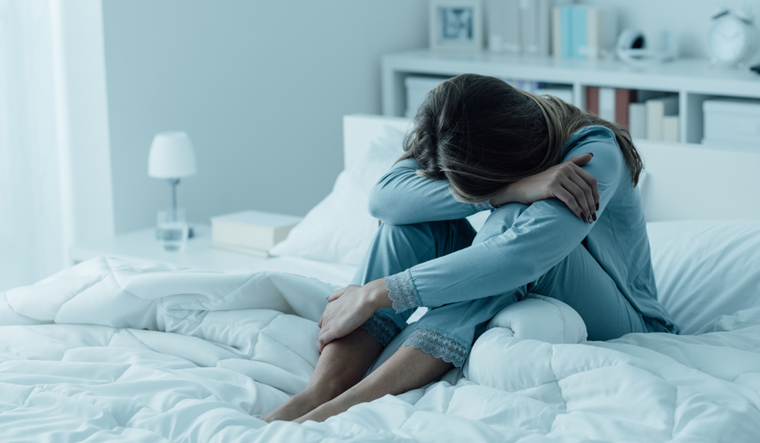I am fighting off a post-lunch slump, on a work from home day, when my phone pings. 'Hi, how are you', reads the message from a college friend, who had gone off the grid two months ago. She told me a break from all the 'noise' was needed for her mental health.
Star athlete Simone Biles dropping out of the Tokyo 2020 Olympics due to a case of the 'twisties' close on the heels of tennis star Naomi Osaka talking about her mental health, stirred up a conversation around mental health. Several people criticised the four-time Olympic medalist Biles, including calling her “selfish”, “immature”, “a shame to the country.” Television journalist Piers Morgan, in a column, called Biles “selfish”. Morgan had quit as co-host of ITV's show 'Good Morning Britain' following thousands of complaints over his critical remarks about Duchess of Sussex Meghan Markle's mental health.
Weibo, China's Twitter-like platform, had recently banned 16 users for a period of 180 days and another 17 users for 90 days for trolling Wang Luyao who had posted on the platform, saying “Sorry everyone, I admit I chickened out. See you in three years.” A medal hopeful, Luyao, however, had come 18th in the 10-meter air rifle qualifier.
The conversation with the friend about mental health reminded me of another friend, who spoke to me about his mental health, about how losing his father to COVID-19 affected him, and how seeking the help of a therapist put him at ease and helped him discover a sense of calm. About three years ago, I too faced my demons and talked to a counsellor, who helped me navigate through a difficult time.
About ten years ago, it would have been tough for such conversations to take place. At least in India, it would be safe to say that actor Deepika Padukone openly talking about her overcoming depression in 2015 was a watershed moment for discussion on mental health issues.
Since then, the conversation around mental health has evolved. It has become more acceptable for people to talk about 'this stuff'. There is still a long way to go in terms of awareness, medical insurance and other matters of detail, including the workplace attitude towards mental health. But, that's conversation for another day.
The generation before us would rarely talk about mental health or well-being. My aunt who lost her 23-year-old daughter would not have opted for grief counseling, even if the option was presented to her. Nor would a teenager who scored low marks in board exam be taken to talk to a counsellor.
If the situation seems much better today, it is because of the internet. Granted, the medium has its flaws, and an overdose of information may confuse us. But, the Gen Z or millennials like me are 'woke' to issues like sexism, body shaming and covert racism, thanks to the internet.
Burnouts are being more openly discussed. Sabbaticals and gap years are being viewed with less and less suspicion. Youngsters seem to be more aware of mental well-being. Ten years ago, a senior journalist would never have talked to me about choosing to step down despite the generous package she was being offered, for the sake of her sanity; nor would we hear Sachin Tendulkar say that he battled anxiety for about 12 years—it probably would have sabotaged his career to a great deal.
Articles, posts, and Gifs on social media have by and large contributed in making the conversation around mental health easier. Without millennials or Gen Z taking upon themselves to talk louder and clearer about mental health and the stigma around it, we wouldn't have a Priyanka Chopra backing Simone Biles on Instagram, only more Piers Morgans putting down 'pinocchio princesses'.



